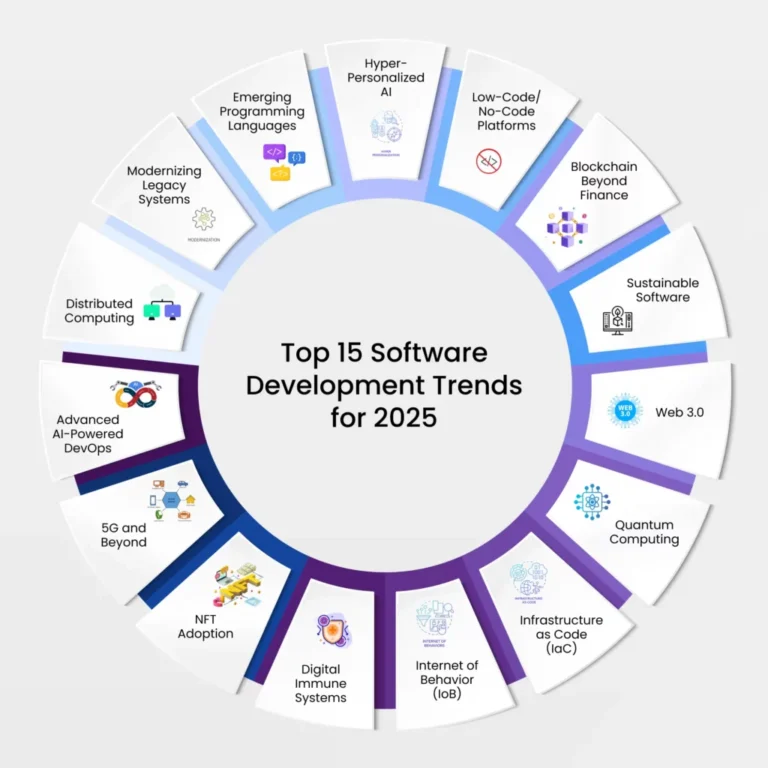Best Software Development Tools 2025: Power Your Projects with the Right Tech Stack
As software projects grow more complex and timelines tighten, choosing the right development tools can make all the difference. From faster deployment to cleaner code, the best software development tools in 2025 are designed to streamline workflows, improve team collaboration, and adapt to emerging trends like AI-assisted coding and cloud-native development. Whether you’re a solo developer, team lead, or CTO planning your next product launch, staying current with the top tools ensures you stay efficient, agile, and competitive in an evolving landscape. This guide explores the most impactful tools driving development success this year.
Why AI-Powered Coding Assistants Are Changing the Game
AI has firmly embedded itself in the developer toolkit. Tools like GitHub Copilot, Amazon CodeWhisperer, and Tabnine are now being used to speed up boilerplate generation, suggest code completions, and reduce common bugs. These intelligent coding companions integrate directly into your IDE and adapt to your coding patterns over time. For developers juggling multiple languages or tight deadlines, AI assistants boost productivity while helping maintain code quality. In 2025, smart coding isn’t just a trend it’s quickly becoming a standard.
Cloud-Native Dev Environments That Work Anywhere
With distributed teams and hybrid work models, developers need environments they can spin up and manage from anywhere. Tools like Gitpod and Codespaces offer cloud-based IDEs that mirror production environments, allowing teams to collaborate on code without worrying about local setup conflicts. These platforms integrate version control, testing, and deployment pipelines into a browser-accessible workspaceperfect for fast onboarding and remote collaboration. For companies emphasizing DevOps and CI/CD practices, cloud-native tools reduce friction and boost speed to market.
Version Control and CI/CD Tools That Keep Teams in Sync
Git remains the industry standard for version control, but supporting tools have grown more intelligent and collaborative. GitHub, GitLab, and Bitbucket continue to lead, offering features like automated merge checks, pull request templates, and workflow triggers. On the CI/CD side, platforms like CircleCI, Jenkins X, and GitHub Actions are enabling faster build-test-deploy cycles with less manual effort. These tools help teams ship code faster, catch issues early, and integrate code changes with minimal downtime especially critical for agile teams releasing updates on a weekly or even daily basis.
Full-Stack Frameworks and Libraries That Drive Modern App Development
2025 is the year of streamlined, integrated development stacks. Frameworks like Next.js, Laravel, and Spring Boot continue to shine by offering developers preconfigured structures, built-in routing, and powerful performance features. Frontend libraries like React 19 and Vue 3 are driving responsive, component-based UI development, while backend frameworks prioritize modularity and API-first design. Many of these frameworks now come with native support for TypeScript, GraphQL, and SSR (server-side rendering), allowing developers to build fast, scalable applications with fewer dependencies and less boilerplate.
DevOps and Monitoring Tools That Help You Build and Scale with Confidence
Modern development doesn’t stop at deployment. Tools like Docker and Kubernetes remain essential for containerization and orchestration, while newer platforms like Dagger and Porter simplify infrastructure-as-code and CI/CD workflows. For real-time performance monitoring and error tracking, tools like Datadog, Sentry, and New Relic offer deep visibility into application behavior helping teams detect and resolve issues before they impact users. In a world where user experience drives retention, these tools give developers the insights needed to scale confidently and support post-launch success.
FAQs
Are AI coding tools replacing developers?
No they assist, not replace. AI tools speed up routine tasks but still rely on developer judgment and logic for structure, architecture, and problem-solving.
Which tool is best for remote collaboration on code?
GitHub Codespaces and Gitpod are both excellent for enabling remote development, especially with real-time editing and shared environments.
Can I use these tools for both frontend and backend development?
Yes. Full-stack frameworks like Next.js and Laravel support both frontend rendering and backend logic in one cohesive environment.
What’s the best CI/CD tool for startups?
GitHub Actions is widely used for its simplicity and integration, but CircleCI and GitLab CI offer strong scalability and automation features.
Do these tools require enterprise-level infrastructure?
Not necessarily. Most tools offer scalable plans for individual developers, small teams, and growing startups making them accessible across all stages.


